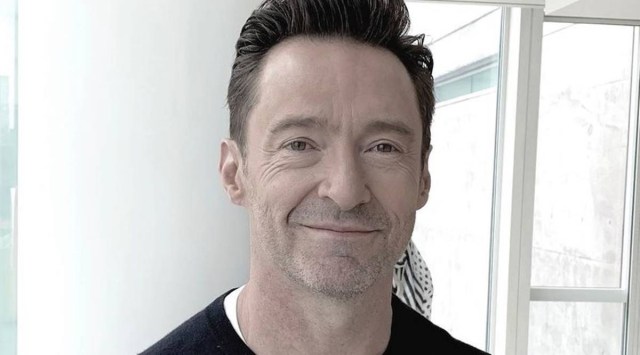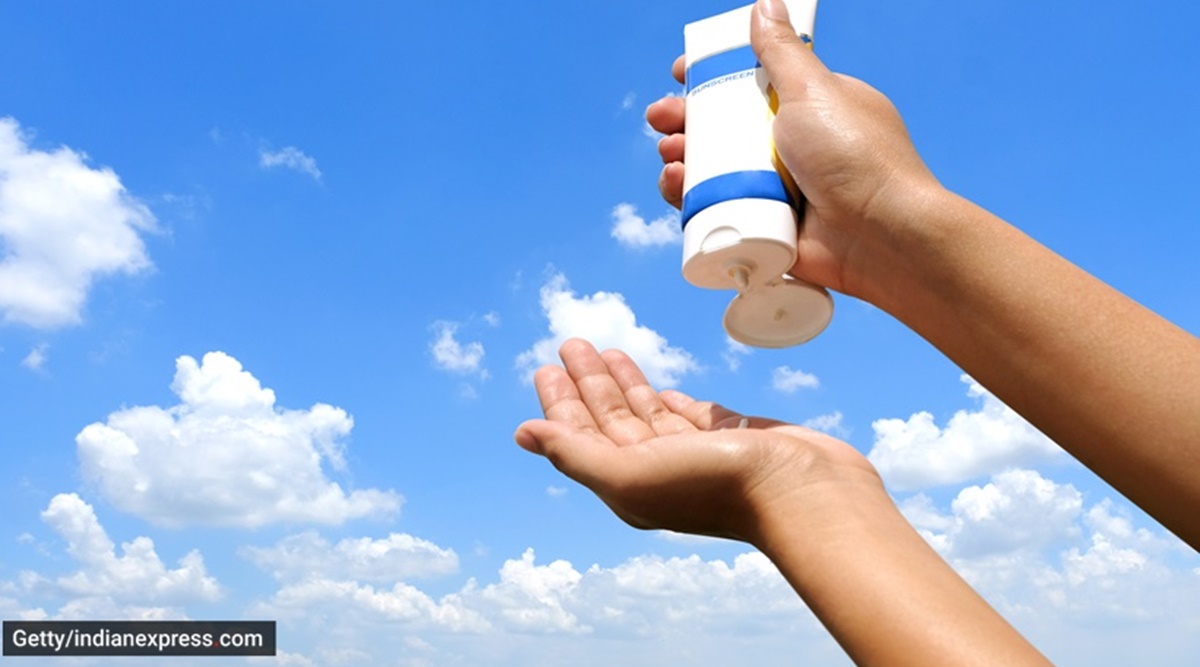📣 For more lifestyle news, click here to join our WhatsApp Channel and also follow us on Instagram
Amid new skin cancer scare, Hugh Jackman urges everyone to wear sunscreen: ‘No matter how much you want a tan’
"Put some sunscreen on...You'll still have some incredible time out there...Please be safe," Hugh Jackman added
 Hugh Jackman urges everyone to wear sunscreen (Source: Hugh Jackman/Instagram)
Hugh Jackman urges everyone to wear sunscreen (Source: Hugh Jackman/Instagram)Australian actor Hugh Jackman took to Instagram to reveal that he is undergoing skin cancer biopsies after a recent medical check-up for iron deficiency. Sporting a bandage on his nose, the Logan actor urged fans and followers to get checked and follow sun safety measures, including wearing sunscreen.
The 54-year-old, who had his first skin cancer removed in 2013 and has since had at least six procedures, added that he expects the test results within the next few days.
“I wanted you to hear it from me, just in case, someone sees me on the street…I have just had two biopsies done. I just went to my doctor with iron deficiency. She said it could be basal cells carcinoma, which in the world of cancers is the least dangerous,” he said.
View this post on Instagram
Stressing the importance of wearing sunscreens, he added, “However, if I can just take this opportunity to remind you summer is coming for us in the Northern Hemisphere…Please wear sunscreen…it is just not worth it…No matter how much you want a tan…trust me…Put some sunscreen on…You’ll still have some incredible time out there…Please be safe…”
In a 2015 interview with People, Jackman had shared that the diagnosis had come as a surprise. “It’s always a bit of a shock, just hearing the word ‘cancer’,” he said. “Being an Australian it’s a very common thing. I never wore sunscreen growing up so I was a prime candidate for it,” he added.
What is basal cells carcinoma?
According to MayoClinic.org, basal cell carcinoma is a type of skin cancer that most often develops on areas of skin exposed to the sun. “Basal cell carcinoma is a common skin cancer which is seen on face and neck due to long-term UV damage. Not very common in skin of colour, it usually affects Caucasian skin,” said Dr Vandana Punjabi, consultant dermatologist and trichologist, Nanavati Max Superspeciality Hospital.
“In brown skin, this looks like a skin-coloured or black growth which often patients ignore taking it to be a mole. However, it continues to grow in size, develops blood vessels and can start bleeding on touch or friction,” Dr Punjabi told this outlet.
It can be diagnosed on dermoscopy and skin biopsy. “The earlier the diagnosis, better the treatment chances or the cancer tends to spread on the surrounding skin and into deeper tissues,” said Dr Punjabi.
How is it treated?
Dr Punjabi said that it can be treated with surgery, and cryotherapy. “Smaller ones can be treated with prescription creams,” shared Dr Punjabi.
How do sunscreens help?
 Make sure you re-apply sunscreen (Source: Getty Images/Thinkstock)
Make sure you re-apply sunscreen (Source: Getty Images/Thinkstock)
The Skin Cancer Org has deduced that with regular use of sunscreen, one can reduce the risk of skin cancers tremendously. “Using a sunblock of a minimum of SPF 15 can radically lessen the risk of developing squamous cell carcinoma (SCC) — the second most common form of skin cancer — by a massive 40 per cent, and also lower melanoma, another form of skin cancer, and its risk by 50 per cent,” Dr Somdutta Singh, Founder of Assiduus Global and The Real BossLady Beauty told indianexpress.com in an earlier interaction.
As per Cancer Council, an SPF of 30 allows 1/13th or 3.3 per cent of UV to reach your skin. This means it filters 96.7 per cent of UV. With an SPF of 50, 98 per cent is filtered and 1/15th or 2 per cent gets through. So, the high the SPF value, the fewer UV passes through.
Dr Sushma, dermatologist and cosmetologist, Skinology, Bangalore told indianexpress.com that one should always use a sunscreen with a minimum SPF 30 — not only on the face but on all exposed areas of the body. “You can also opt for tinted sunscreens if planning to step out,” said Dr Sushma.
The thumb rule is a teaspoon per limb, experts say, adding that re-application is necessary, more so in summers.
📣 For more lifestyle news, follow us on Instagram | Twitter | Facebook and don’t miss out on the latest updates!
📣 For more lifestyle news, click here to join our WhatsApp Channel and also follow us on Instagram


- 01
- 02
- 03
- 04
- 05
























